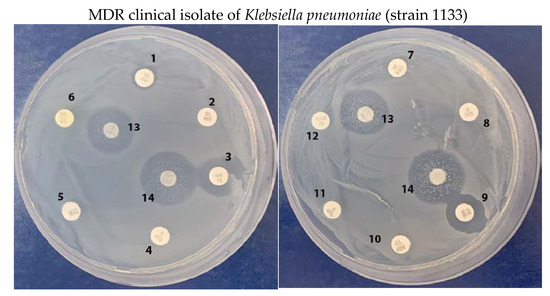💡 The primary objective of this study was to examine the antibacterial activity of peptide derivatives of phosphinothricin against Multidrug-Resistant 𝘒𝘭𝘦𝘣𝘴𝘪𝘦𝘭𝘭𝘢 𝘱𝘯𝘦𝘶𝘮𝘰𝘯𝘪𝘢𝘦.
📌 Using the Agar Diffusion method, researchers assessed the antimicrobial efficacy of Bialaphos, L-Leu-L-PT, and twelve other antibiotics against 𝘒𝘭𝘦𝘣𝘴𝘪𝘦𝘭𝘭𝘢 𝘱𝘯𝘦𝘶𝘮𝘰𝘯𝘪𝘢𝘦 ATCC 13883 and multidrug-resistant clinical isolates, applying varied doses of these substances to paper discs on an agar plate containing the bacteria.
📌 Phosphinothricin, in the form of its peptide derivatives, L-Leu-L-PT and Bialaphos, exhibits effective inhibitory activity against multidrug-resistant clinical isolates of 𝘒𝘭𝘦𝘣𝘴𝘪𝘦𝘭𝘭𝘢 𝘱𝘯𝘦𝘶𝘮𝘰𝘯𝘪𝘢𝘦.
These 𝘒𝘭𝘦𝘣𝘴𝘪𝘦𝘭𝘭𝘢 𝘱𝘯𝘦𝘶𝘮𝘰𝘯𝘪𝘢𝘦 strains were not initially sensitive to twenty-four commonly used antibiotics of different classes.
📌 The process of nitrogen assimilation (specifically via glutamine biosynthesis) is identified as crucial to the growth of 𝘒𝘭𝘦𝘣𝘴𝘪𝘦𝘭𝘭𝘢 𝘱𝘯𝘦𝘶𝘮𝘰𝘯𝘪𝘢𝘦 and considered a potential target to inhibit the proliferation of multidrug-resistant strains.
📌 These findings make both Bialaphos and L-Leu-L-PT potential candidates for further development as effective antibiotic agents, particularly against multidrug-resistant bacteria.
📍 The study indicates that peptide derivatives of phosphinothricin might present a promising approach in battling multidrug-resistant bacterial strains, such as 𝘒𝘭𝘦𝘣𝘴𝘪𝘦𝘭𝘭𝘢 𝘱𝘯𝘦𝘶𝘮𝘰𝘯𝘪𝘢𝘦.
📍 This research contributes to the antibiotic stewardship field by offering potential solutions to tackle multidrug-resistant bacterial infections, a significant challenge in the current medical landscape. This insight could guide novel therapeutic strategies and contribute to the mitigation of antibiotic resistance.
Link to the article : https://tinyurl.com/yc8fdw49
